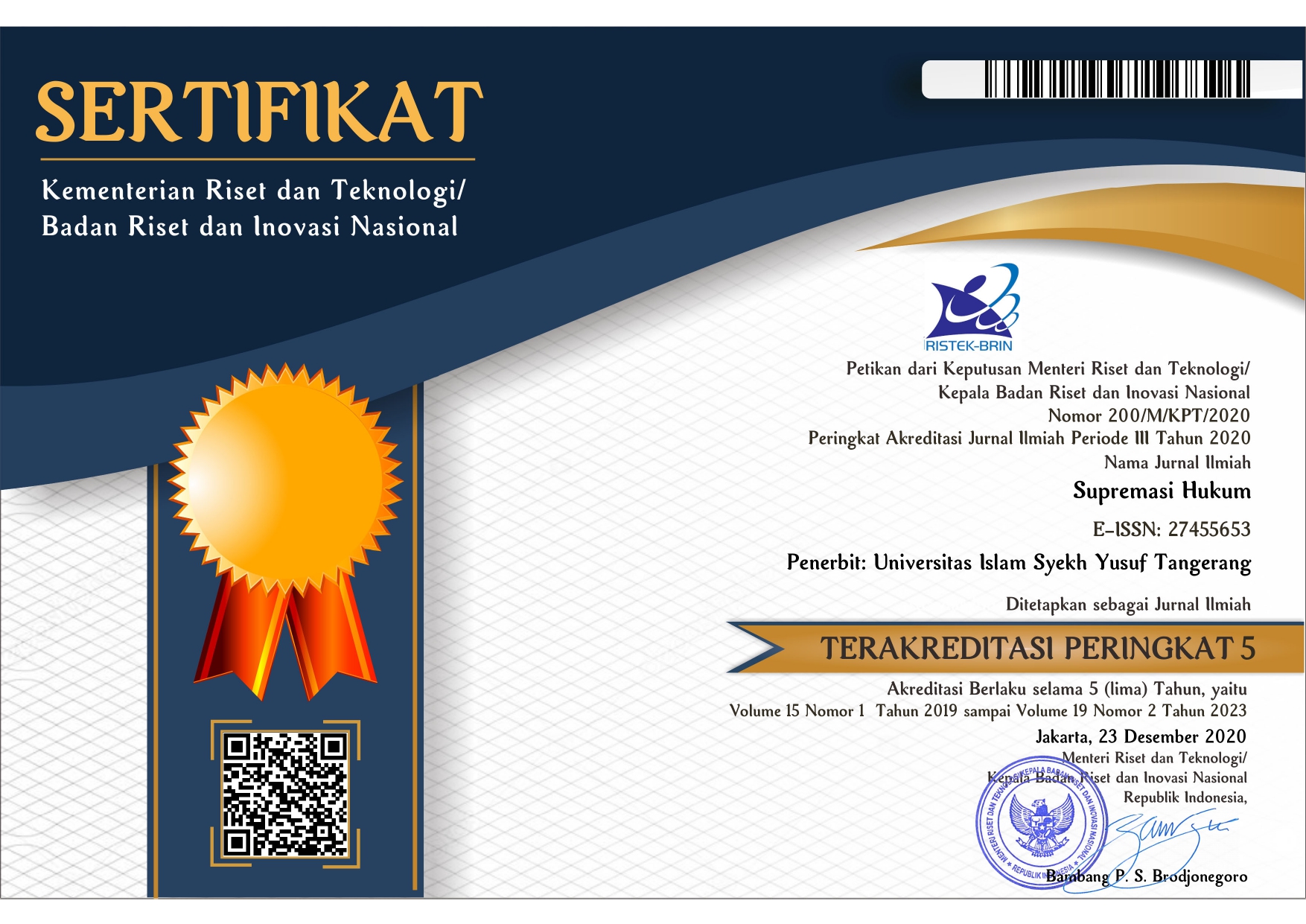EKSISTENSI PAJAK BAGI PEMBANGUNAN NASIONAL
DOI:
https://doi.org/10.33592/jsh.v17i01.1161Abstract
Taxes are mandatory contributions imposed on the public coercively by state without direct reciprocal obtained from the tax payment. The main purpose of such is as state revenue for national development which aims to improve the welfare of its people and is collected based on the principle of justice. This can be observed from 3 perspectives, which is philosophical, juridical, and sociological perspectives. Philosophically, tax collection is fair because it is desired and approved by the public through DPR as the people’s representative who creates law on tax collection. Moreover, the collected taxes are also for national development in order to achieve welfare state. Juridically, the government has made efforys to improve tax regulations to keep up with the times and society since the early days of independence, such as UU KUP that has beed revised several times from 1983 to 2009. In addition, the issued tax regulations also prioritize elements of justice such as PPh which in calculation uses progressive rates and PTKP. Sociologically, public awareness is still lacking. This can be solved by government efforts to create good image of tax by implementing the principles of good governance in order to create social trust and the people themselves want to pay taxes (voluntary tax compliance).
Keywords: Tax, National Development, Principle of Justice, Welfare State.
Downloads
Published
Issue
Section
License

Supremasi Hukum this site and metadata is licensed under a Creative Commons Attribution-NonCommercial-ShareAlike 4.0 International License



